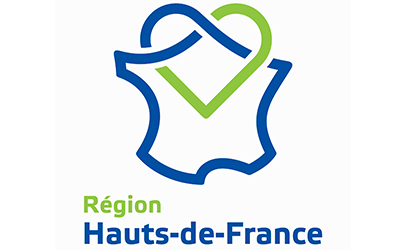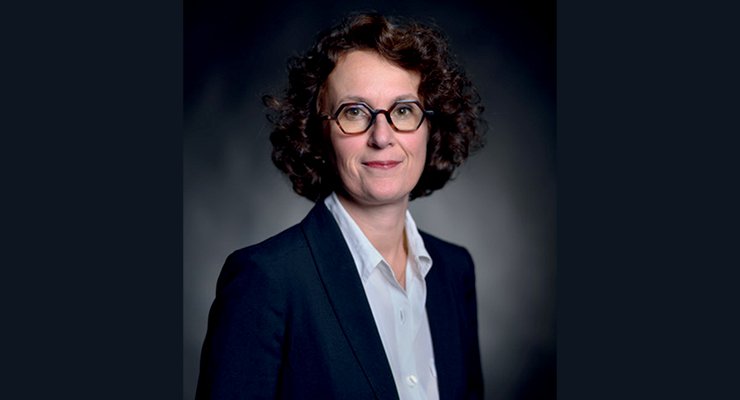UTC's strategic partners
In line with its values and credo, UTC has the capacity to transform its academic added values into riches benefitting the Region, defining strategic orientations shared by institutional, economic and social partners.
The French UT network
The French UT network, a historic joint model
UTC was established in 1972, UTBM in 1985 and UTT in 1994. Together they have decided to form a Group (as of 2013). UTC here complies with a structural policy logic based on sharing views on the training/research model and its reinforcement. The students are the first beneficiaries, with a common admission process and a highly dynamic alumni network. Moreover, to the extent that the engineering diploma has become increasingly attractive outside France, the UT Group has multiplied its determination to convince new international partners and to consolidate its presence and visibility to foreign entrepreneurs/partners.

The joint strength of the UT Group led to the establishment of a joint campus at Shanghai: the Sino-European University of Technology of the University of Shanghai (UTSeuS). The 4 French Universities of Technology share the same set of assigned missions: teaching and training, research and technology transfer. Together they have more than 7 000 matriculated students and have awarded more than 20 000 engineering diplomas.
Sorbonne University Alliance
In 2012, UTC became a member of the Sorbonne University Alliance, with 6 other French Higher Education establishments:
- University Paris-Sorbonne (Paris IV)
- Université Paris 6, Pierre & Marie Curie (UPMC)
- The European Institute for Business Administration (INSEAD, Fontainebleau)
- The Muséum national d'histoire naturelle (MNHN, Paris)
- The HE artistic training pole – Paris Boulogne-Billancourt (PSPBB)
- The International Centre for Pedagogical Studies (CIEP)

as well as 4 national research establishments:
- The Centre national de la recherche scientifique (CNRS)
- The Institut national de la santé et de la recherche médicale (Inserm)
- The Institut de recherche pour le développement (IRD)
- The Institut National de Recherche en Informatique et en Automatique (Inria)
It is an alliance signed between prestigious HE establishments qualifying as 'excellent' each providing its best skills and talents a wide range of academic specialties (economics, humanities, business, science, medicine and technology). The interdisciplinarity joint actions of the actors and the community implication in Society constitute a strong driving force. The resources shared (start-up nurseries, technology maturation structures …) therefore plays an important role in regional and national economic development.
As a member of this partnership, UTC complies with a strategic logic of thematic complementarity and international visibility via numerous, world-wide co-operation agreements. In short, the Sorbonne Universities cluster is recognized as one of the world's prime research centres.
This particular project was one of the laureates of the second wave of the 'excellent' initiatives (Idex) selected in the French Government's Investments for the Future incentive plan. With the acronym SUPER (Sorbonne Universities in Paris for HE and Research), this Idex – with a spirit of innovation – will provide strong leverage for economic, environmental, social, cultural, intellectual and international developments through the knowledge base, the skills and talents available, discoveries and new technologies that will be produced, as well as by the quality of the managers, research scientists and leaders that will be trained.
The Hauts-de-France Region
The Hauts-de-France, focal point for the deployment of UTC's local innovation and creativity ecosystem
The Hauts-de-France Region plays a special role with respect to day-to-day lives of the 'Picards' and the student populations in particular. The Regional authorities have adopted a smart specialization strategy (S3) which provides financial support to the local HE establishments, accompanying their development, in such a way that Research will become a vector for local growth. Scientific research activities receive special support through a regional policy with 3 main priorities:

- to encourage dynamic research plans and mobility of high level research scientists
- to encourage and enhance open approaches to research, where the regional poles federate activities of the local laboratories. Better recognition of scientific and technological knowledge and know-how also helps make these accessible to enterprise
- to encourage local companies to hire regional manpower specialized in science and technologies. Three levels of relationship have been created between the partners: universities/enterprise; resource centres /enterprise; secondary schools /enterprise.
The Hauts-de-France Region also supports students helping them to carry out their studies in the best possible conditions. There are aid packages for health, for transport, for international mobility and cultural events.
Moreover, UTC, UPJV-Amiens Jules Verne), the Ecole d'Ingénieurs en Génie Electrique, Informatique, Télécommunications, Réseaux, Productique et Développement Durable (ESIEE – Amiens), the Institut Polytechnique La Salle Beauvais (IPLB), the Ecole Supérieure de Chimie Organique et Minérale (ESCOM – Compiègne), the Ecole Supérieure d'Art et de Design (ESAD – Amiens)… and all the other HE establishments in Hauts-de-France have set up an association (French 1901 law).
UTC therefore complies with a regional logic of contents and territorial implications. The association has initiated a Regional Conference for HE and Research establishments. It also aims at developing and extending the implementation of the local Innovation and Creativity Eco-system in what is known as Picardie Technopole.
ESCOM
ESCOM: a european 'green chemistry' focal point
One of the major challenges facing UTC is to be able to attract means and skills needed for any viable future development. With this policy issue in mind, UTC approached ESCOM (Ecole Supérieure de Chimie Organique et Minérale) and the Institut Polytechnique Lasalle Beauvais (IPLB) to set up the first European 'green chemistry' pole in the Picardie Region.

One of the early projects undertaken in this partnership framework was the creation of a R&D platform in Chemistry and Thermo-Chemistry, the first joint scientific tool serving the needs of the pole of comptetivity Industry & Agro-Resources (IAR), in which both IPLB and UTC are actors and partners. The R&D platform is part of the national development plans for increased use of renewable resources, following the general policy aim of attaining sustainable development. It is a partnership that will also seek to develop scientific complementarities between UTC and IPLB, notably in the areas of environment, geosciences and agro-food sectors.
Convergence of views between UTC, ESCOM, IPLB and the Picardie Region led UTC to propose this geographic and thematic collaboration, serving the Region's land-development plans.



